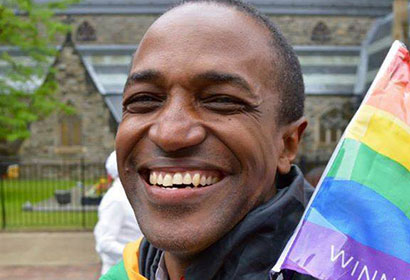Jamaica Supreme Court shows religious bias in LGBT rights case

Maurice Tomlinson
In a blow to a bid to overturn Jamaica’s anti-gay law, the country’s Supreme Court has said that religious views must be considered in the matter.
Last week, the court ruled that it would allow nine religious groups to be interested parties in the legal challenge of Jamaica’s sodomy law by lawyer Maurice Tomlinson.
However, it declined a similar application by Public Defender Arlene Harrison Henry who believes that LGBT people “are entitled to equality, representation, and equal protection of laws”.
The religious groups argued that they must be allowed to participate in the case on the basis of freedom of religion, equality before the law, the right to a healthy environment, and the right to privacy.
They also claimed that gay men must be banned from having sex because that will inevitably lead to the exploitation of children.
“This is truly a David and Goliath situation, requiring me to respond to not only the government’s, but also the religious groups’ arguments,” commented Tomlinson.
The legal challenge, supported by the Canadian HIV/AIDS Legal Network and AIDS-Free World, argues that Jamaica’s anti-sodomy law violates the constitutional rights of its people. The 1864 British colonial era law criminalises all forms of intimacy between consenting adult males, even in private
“During the hearing of the applications, the court stated that some of the churches’ allegations seem far-fetched. Nevertheless, the court found that the opinion of the majority of Jamaicans — as reflected by the religious groups — was important in deciding what two consenting adults do in the privacy of their bedrooms,” said Tomlinson.
He told Erasing 76 Crimes that, “At best, this reasoning is at odds with the constitutional principle of protecting minority rights from being trampled on by the will of the majority.”
UNAIDS and other groups involved in the national HIV response have identified the law as contributing to the reason Jamaica has the highest HIV prevalence rate among men who have sex with men (MSM) in the western hemisphere, if not the world (33%). MSM are driven underground and away from effective HIV prevention, treatment, care and support interventions, they say.
The Public Defender has indicated that she will seek leave to appeal the court’s ruling and the matter will likely be suspended until that appeal is heard. This means that the full hearing is not expected to take place before 2017.
Jamaica has a reputation of being one of the world’s most homophobic countries and those found guilty of gay sex can be jailed for up to ten years.
Leave a Reply